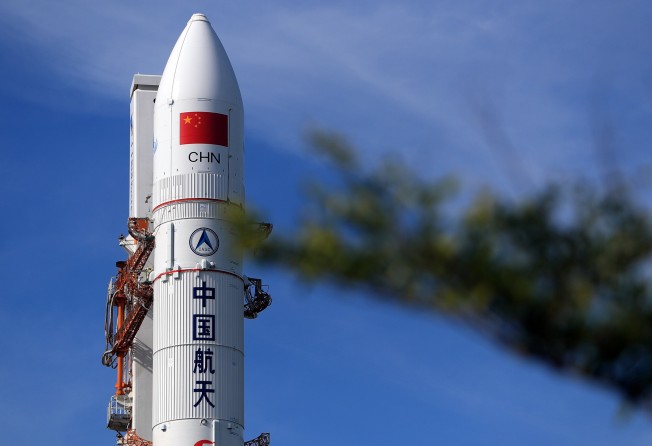How a Chinese rocket scientist’s resignation started a nation talking about its poorly paid talents
Debate over state-owned firms’ retention of talent after scientist’s abrupt resignation and a claim that he has taken a job in the private sector earning 10 times his old salary

A legal document describing how an obscure rocket scientist left his job at a Chinese aerospace company has gone viral, igniting a fierce debate over state-owned enterprises struggling to retain their talent, as well as fears of China falling behind in the global space race.
Photos of the document were published on Thursday in a Weibo essay by blogger Zi Zhuzhang, titled “Why are talents that can directly influence China’s moon landing left to languish at the bottom of state-owned enterprises?”
It prompted debate on social media, including open criticism of state-owned enterprises (SOEs) – which is rare in China – on the same day that President Xi Jinping vowed to continue to strengthen SOEs and said attempts to “diminish SOEs are wrong and one-sided”.
Written by Xian Aerospace Propulsion Research Institute and dated September 17, the document states that Zhang Xiaoping had left his job as deputy director of rocket design at the institute, a state-owned enterprise, where he was responsible for developing rocket propellers that could potentially be used to launch Chinese spacecraft onto the moon.
The document describes how Zhang was “most crucial to the development process”, had “irreplaceable” talents and argued that his departure could affect China’s race to send people to the moon.
But the institute claimed on Thursday after the document went viral, that they had exaggerated Zhang’s role because before leaving, he had not gone through the two-year “desensitisation” period required for those who work with sensitive information, and it had been desperate to retain him so he could do so.
In a statement on its official website, the institute said Zhang – who had been employed there since 1994 and dealt with confidential data – had “left the work unit under unauthorised circumstances” in March and could not be persuaded back. It then filed a case with the Xian Labour Dispute Arbitration Commission.
“Because the author of the document was eager to achieve the goal of desensitisation, they used inappropriate wording to exaggerate Zhang’s position and responsibilities at the institute,” the statement read.
“After it was circulated by Zhang Xiaoping’s friends and spread to the internet, it attracted widespread attention and some misunderstandings that have struck a harmful influence.”
An unnamed senior manager at the institute was quoted by Beijing Youth Daily as saying the document was presented by the firm at the employment tribunal hearing, which started last Wednesday.
The institute is known for specialising in developing cryogenic rocket engines, using fuel at ultra-low temperatures and similar to those used in Nasa’s space exploration efforts. China is one of only six countries to have successfully developed this technology.
The essay by Zi, who claims to be based in Hong Kong, said Zhang had taken up a research position at the private aerospace firm Landspace Tech, earning 10 times his previous salary of 120,000 yuan (US$17,400) per year.
Landspace Tech is developing commercial forms of space travel, similar to that of Elon Musk’s SpaceX.
However, staff members at the institute have claimed that a manager at Zhang’s level would normally earn about 200,000 yuan per year plus bonuses, according to Beijing Youth Daily.
Graduate starting salaries at Landscape Tech can reach 350,000 yuan, an industry insider said, adding that many state research institutes were struggling to retain talent due to low pay and difficulty in earning promotions.
The essay also sharply criticised what it called an inefficient working culture at Chinese state-owned enterprises, claiming ambitious, talented employees are held back by stale hierarchies and opaque internal politics.
The tale appears to have struck a chord with many Chinese, who have been circulating the essay in droves on WeChat and Weibo.
“Low wages for science and technology talents is a fact that cannot be refuted,” read one top-rated comment on a report on Thepaper.cn.
Many have also questioned why the company apparently let Zhang leave so easily when he had access to state secrets that could have been leaked to foreign competitors.
Another person commented: “We should really increase the pay of frontline science workers and academics, especially those working hard in tough environments. Zhang’s case is an alarm bell … the state should really nurture and value talent.”
Even the Communist Party mouthpiece People’s Daily weighed in on the debate, calling for companies to strengthen their HR processes to avoid a brain drain in hi-tech sectors.
“If not, then huge chaos will ensue every time someone leaves their job,” read an editorial published on Thursday evening. “This only shows that the market for crucial professional talent is still not strong enough.”